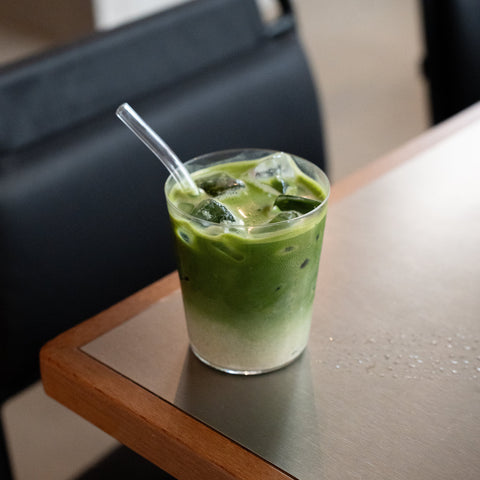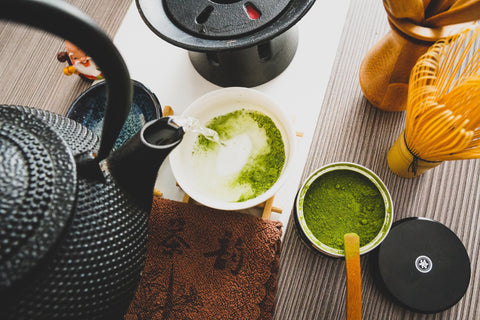
In today’s competitive café scene, standing out requires more than just good coffee. Customers are looking for variety, wellness-focused choices, and memorable experiences. Matcha is one of the most powerful tools cafés can use to differentiate their menu.
Meeting the Demand for Functional Beverages

Consumers are increasingly health-conscious, choosing drinks that provide more than hydration. Matcha offers:
-
Antioxidants (EGCG) that support immunity and metabolism (Yang et al., 2016)
-
L-theanine + caffeine for steady energy and focus (Owen et al., 2008)
-
A plant-based, natural alternative to coffee or artificial energy drinks
Adding matcha positions a café as forward-thinking and wellness-friendly.
Appealing to Younger Demographics

Matcha resonates strongly with Gen Z and Millennials, who value clean-label products, global cultural experiences, and visually striking beverages (Mintel, 2021). Iced matcha lattes, layered drinks, and matcha desserts perform well on social media, providing free organic marketing.
Menu Innovation Opportunities

Cafés can integrate matcha across multiple categories:
-
Classic: Usucha, iced lattes, hot lattes
-
Creative: Matcha with tropical fruits (yuzu, mango), sparkling matcha sodas
-
Dessert: Matcha cheesecake, cookies, or soft serve
-
Seasonal: Festive limited editions (matcha pumpkin latte, matcha coconut blends)
Higher Profit Margins

Premium matcha commands higher pricing than standard tea or coffee. Customers are willing to pay more for authenticity, health benefits, and novelty — giving cafés stronger profit margins per cup (Euromonitor, 2022).
For cafés, matcha is more than an add-on; it’s a way to appeal to wellness-driven, experience-seeking customers. The combination of health, aesthetics, and versatility makes it a must-have for competitive differentiation.
Forest Cloud supplies premium matcha designed specifically for cafés — ensuring quality, consistency, and market-ready innovation.
Explore Forest Cloud Café Solutions →
References
-
Euromonitor International. (2022). Tea in Asia-Pacific Market Report.
-
Mintel. (2021). Global Consumer Lifestyle Trends Report.
-
Owen, G. N., et al. (2008). The combined effects of L-theanine and caffeine on cognitive performance and mood. Nutritional Neuroscience, 11(4), 193–198.
Yang, C. S., et al. (2016). Antioxidants: Benefits and risks for chronic diseases. Annual Review of Food Science and Technology, 7, 209–236.





